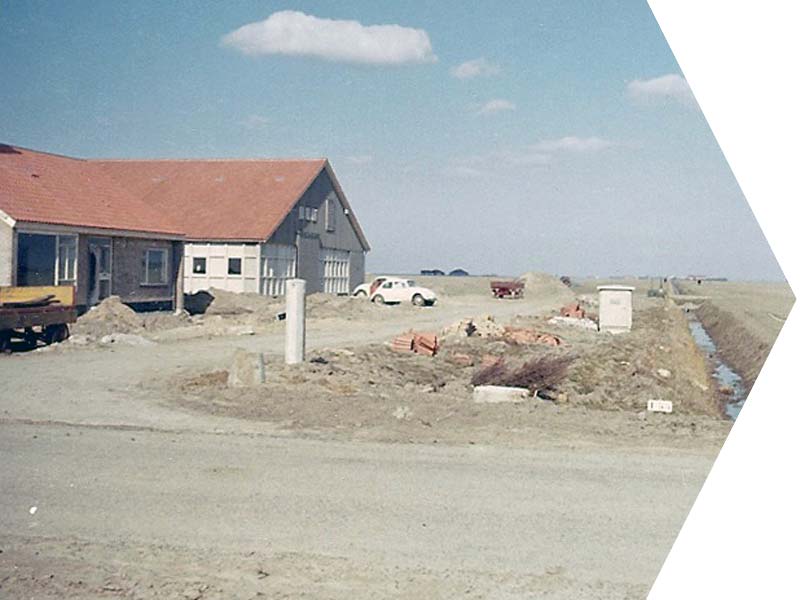
1969
The W. van Tilburg family is assigned an arable farm on the Kubbeweg near Biddinghuizen in the Flevopolder.
For a leasehold of 310 guilders per hectare per year, they grow ware potatoes, as well as sugar beet, onions, grass seed and wheat.
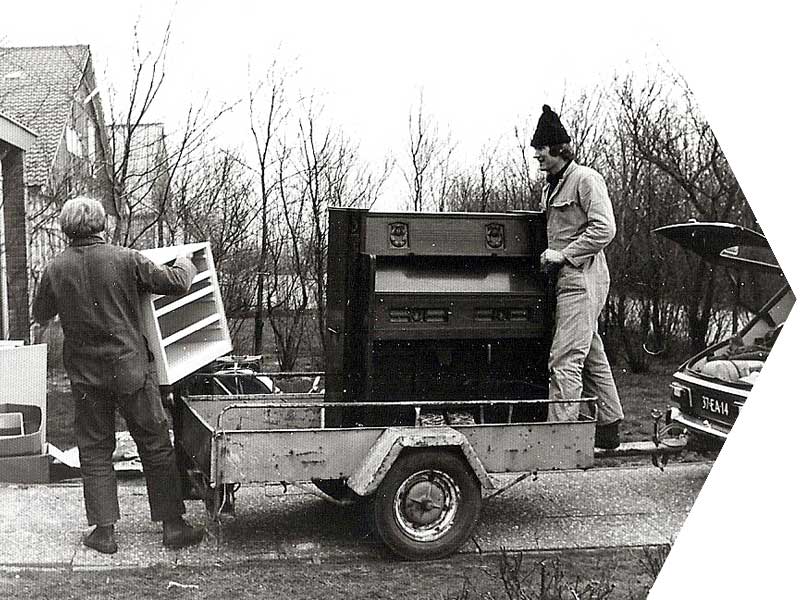
1978
Son Gert Jan takes over the company together with his wife Annie. He moves with his family to the Kubbeweg.
He expands the company, together with his twin brother, in the cultivation of seed potatoes in the Noordoostpolder. They lease land in the Noordoostpolder and the storage and sorting is done at the Kubbeweg.
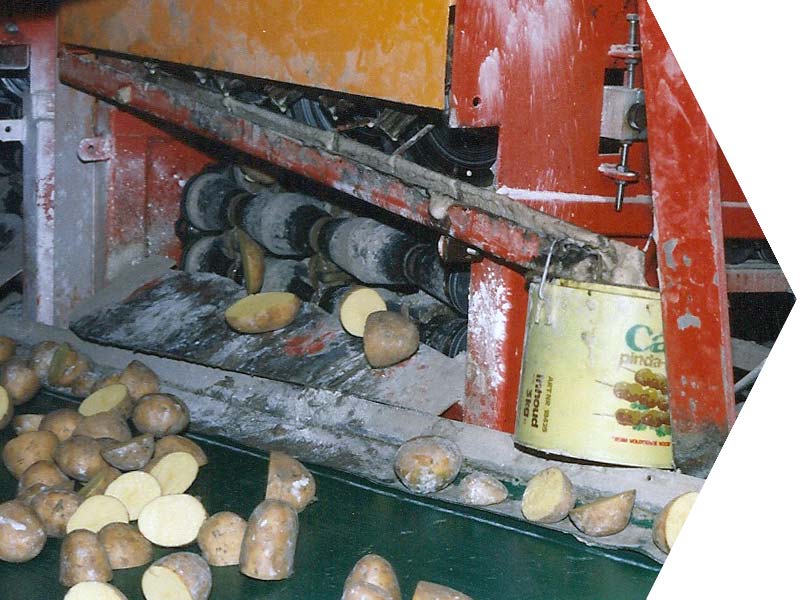
1987
The cutting and experimental washing of seed potatoes commences.
Cutting means double the amount of tubers in measure-per-tonne and also makes it possible to distribute the excess size as seed.
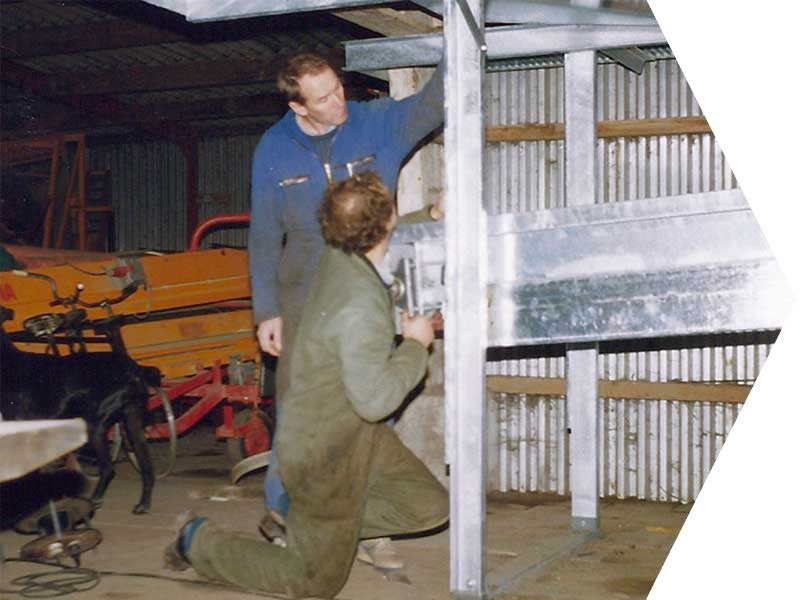
1990
Hygiene is becoming increasingly important to prevent the spread of soil-borne diseases as much as possible.
GAfter a lot of research and experimentation, Gert Jan starts washing and treating seed potatoes.
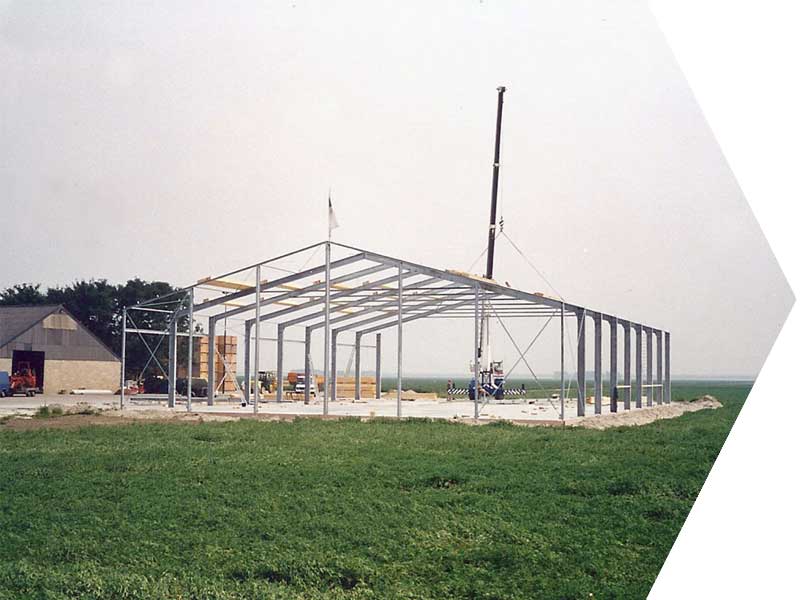
1991
The storage and transshipment, cutting and washing and treatment of seed potatoes appears to be successful.
In September 1991, De Kubbe bv is founded to house all these operations and a large refrigeration unit is built. The name ‘De Kubbe’ is derived from the Kubbeweg where the company is located.
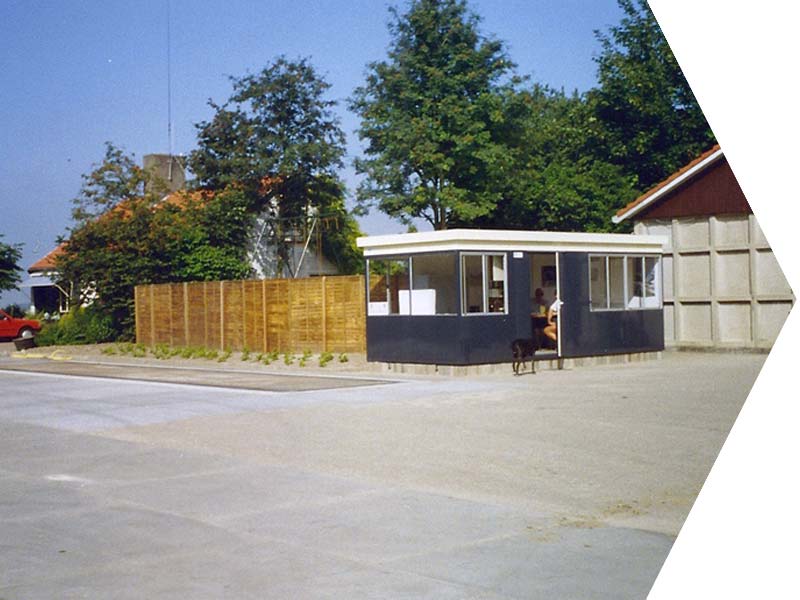
1993
The weighbridge and a windmill are built
A weighbridge is built in 1993. From now on, all shipments and freight entering the site and leaving the site can be weighed.
The windmill that was built in 1993 belongs to Lagerwey. It is the first 40-metre high windmill in Flevoland.
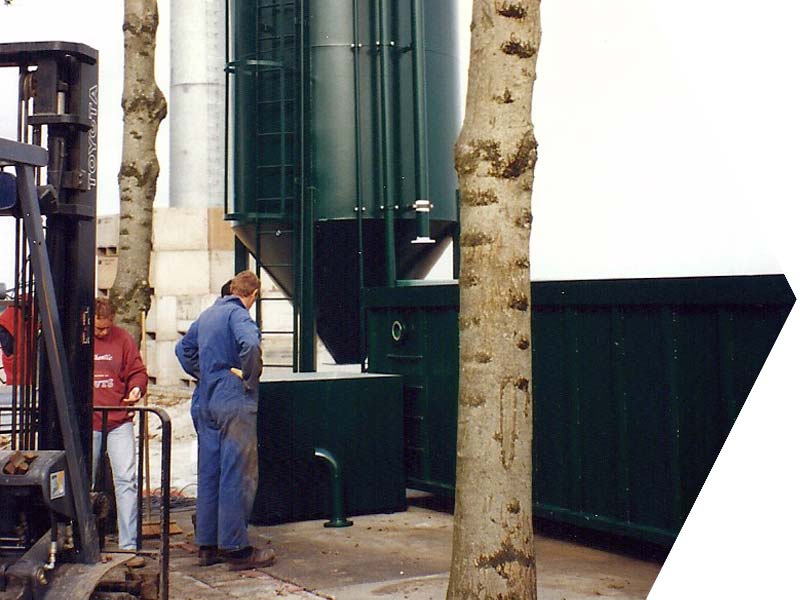
1995
This year sees the construction of a private water recycling installation.
Construction is preceded by an extensive study in collaboration with the water board.
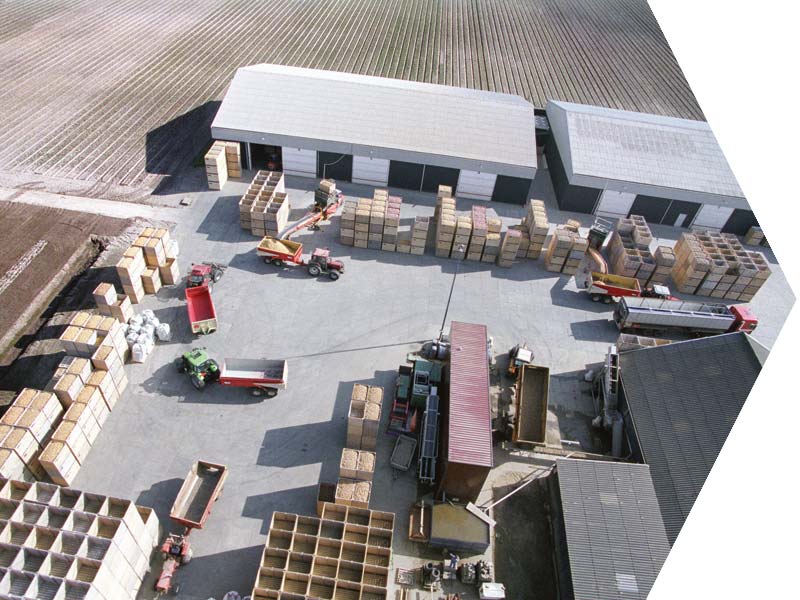
1998
Expansion plays a major role in subsequent years.
IA second large refrigeration unit was built in 1998, doubling the storage capacity. A year later a brand new office is built. In 1998 son Dick officially joins the company.
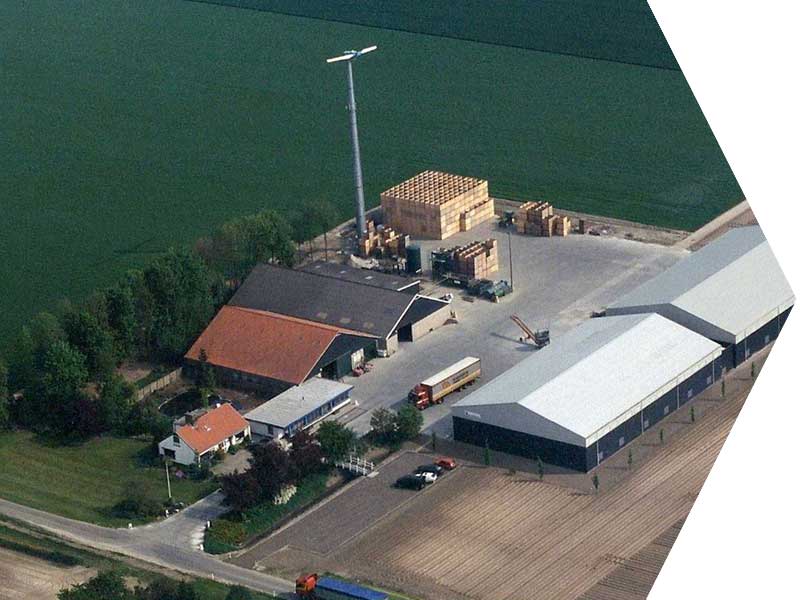
2000
The new office has been built.
Until 2000 we had a home office and the kitchen table was a canteen. It was a relief to Annie that her home was no longer used as a workplace. It is a pleasure to work in the spacious new office.
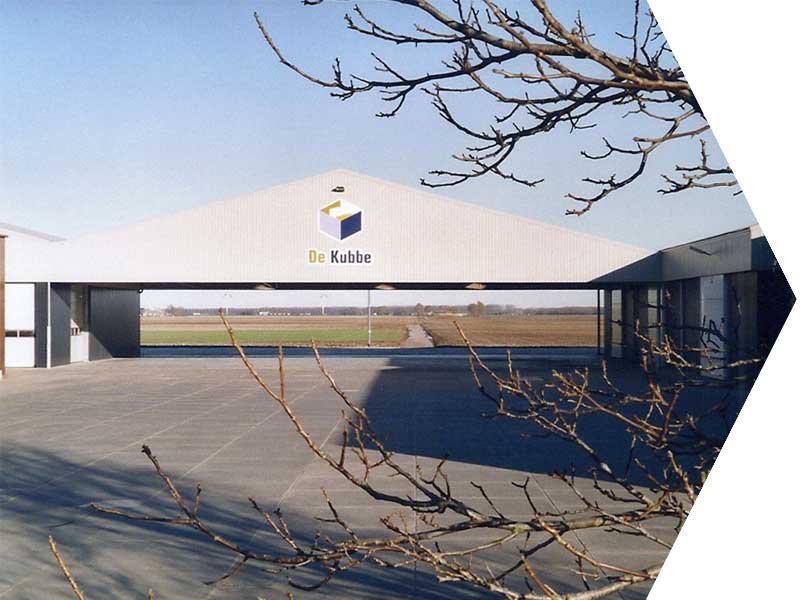
2003
Dick takes over the reins of the company.
Adopting a new house style, he literally gives De Kubbe a new face. A roof will also be built this year and a processing area for washing and treating seed potatoes is added.
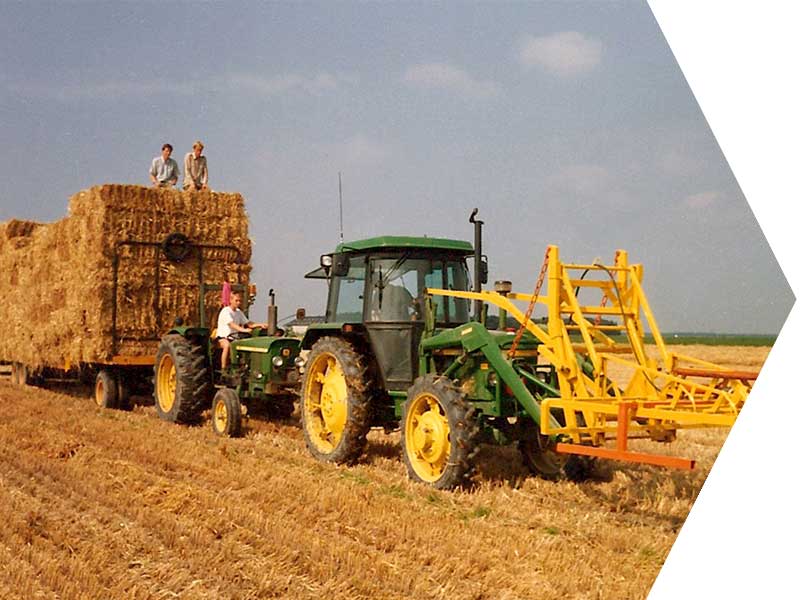
2005
Arable farming is officially ceased.
DDe Kubbe focuses entirely on – and further specialises in – processing seed potatoes.
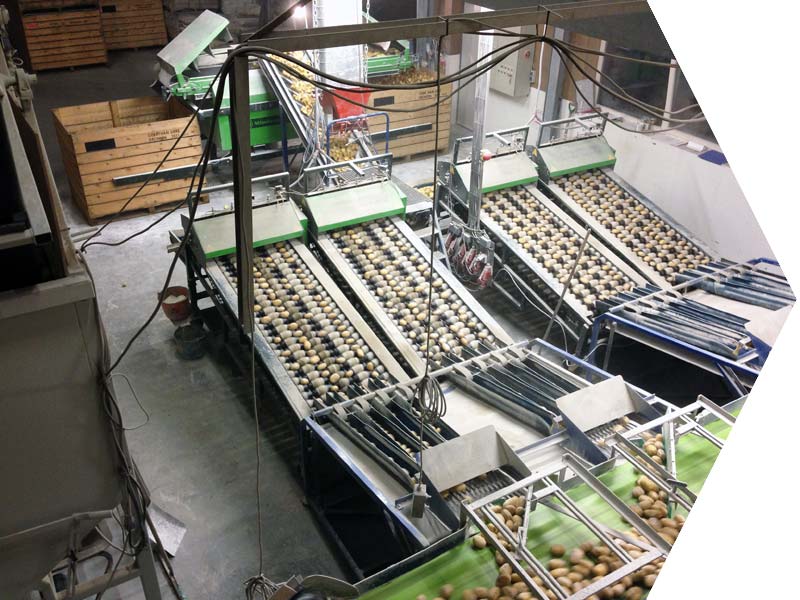
2006
Cutting capacity doubled
A new cooling and processing area for cutting seed potatoes is built. This doubles the cutting capacity.
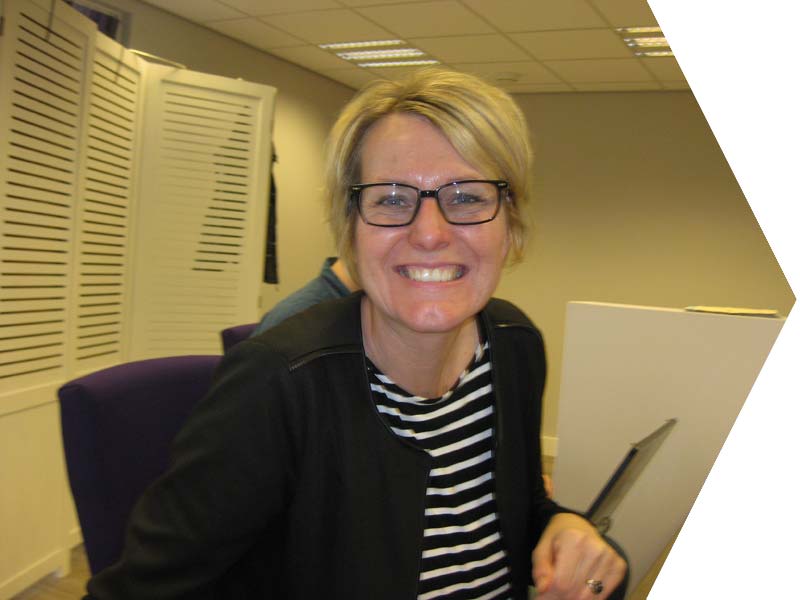
2007
Alice joins the company
Alice, Dick’s wife, starts to work for the company. She takes on the entire financial administration.
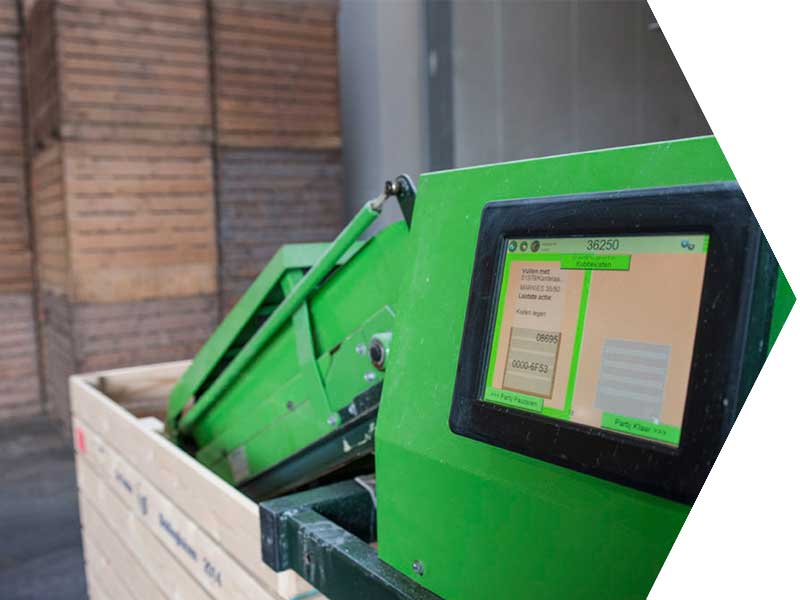
2013
De Kubbe makes technological strides, introducing a tailor-made software system.
All crates and stock data, as well as the complete administration, are kept using this system, called Track & Trace.
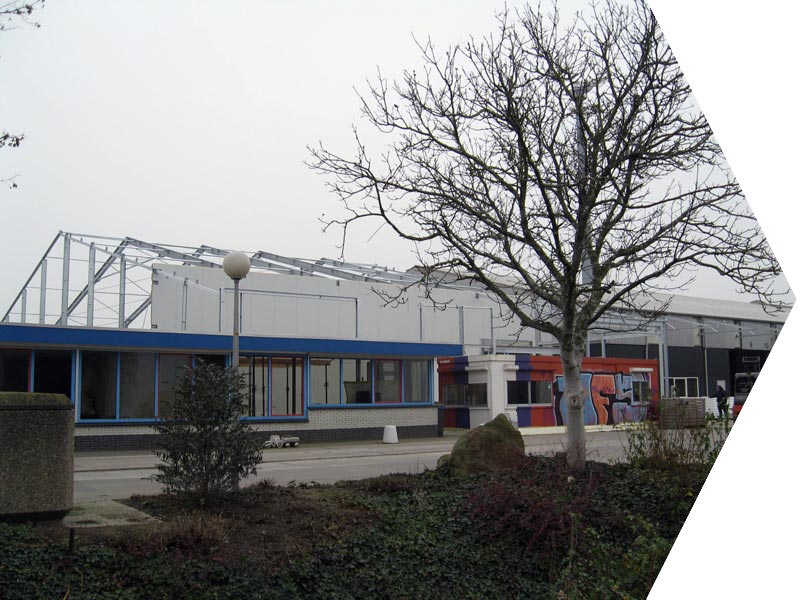
2013/2014
Many renovations and innovations carried out in the company
The old domain barn is demolished. A new refrigerator is built. The office also undergoes a major overhaul. The office is expanded and renovated. The weighbridge is renovated and enlarged. Following all the rebuilding and renovations, all the old buildings from the civil service period are replaced. The machine that counts the tubers is built in the washing line.
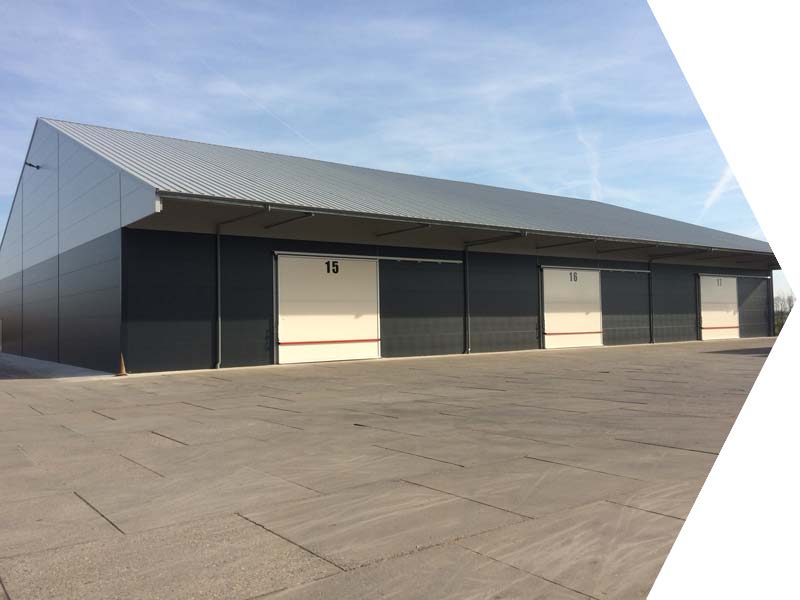
2018
The developments continue!
This year a warehouse is built with a refrigeration unit and a condensation drying installation. The electrical infrastructure was no different, the infrastructure has been completely revised and reconstructed. In addition, 2,200 solar panels were installed on a number of warehouses.
Since 2018, De Kubbe is equipped to wash and store organic potatoes. The necessary SKAL certification has been acquired.
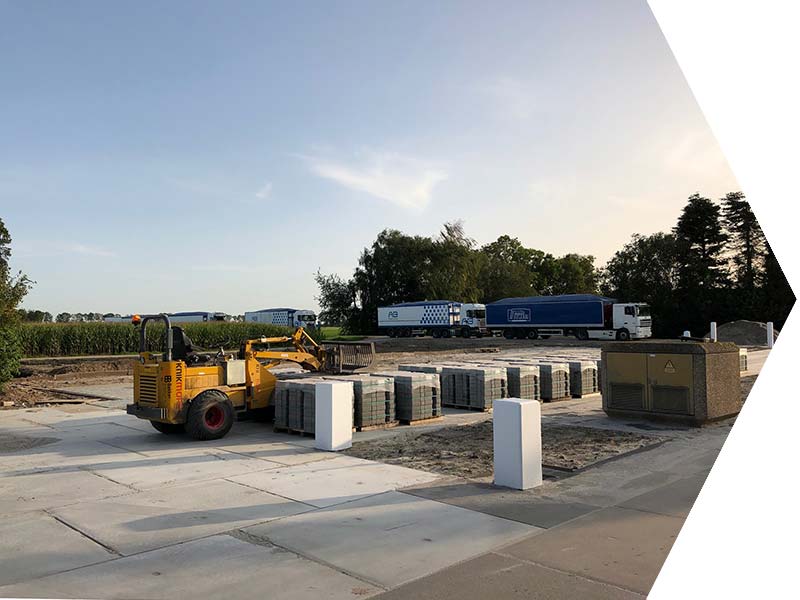
2020
Update of the access lane and parking lot
It is a constant flow of trucks and tractors with trailers. A second access lane is added to improve the flow of all traffic on the De Kubbe site. A parking facility for visitors and staff is also added. It’s a nice addition to the company.
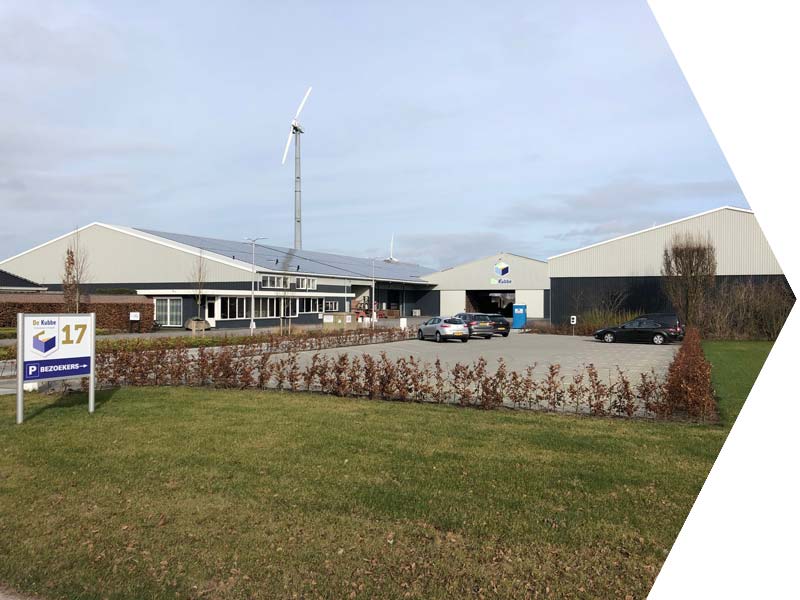
Today
Nowadays, the Kubbe only processes certified seed potatoes. The team adheres to the highest hygiene standards. We work according to the ‘ringrot’ hygiene protocol; a protocol introduced for and by the sector, with hygiene guidelines for all links in the supply chain.
Each year, the company carries out an average of 8,000 – 15,000 tonnes of cutting work and between 13,000 – 18,000 tonnes of seed potatoes go through the wash plant.